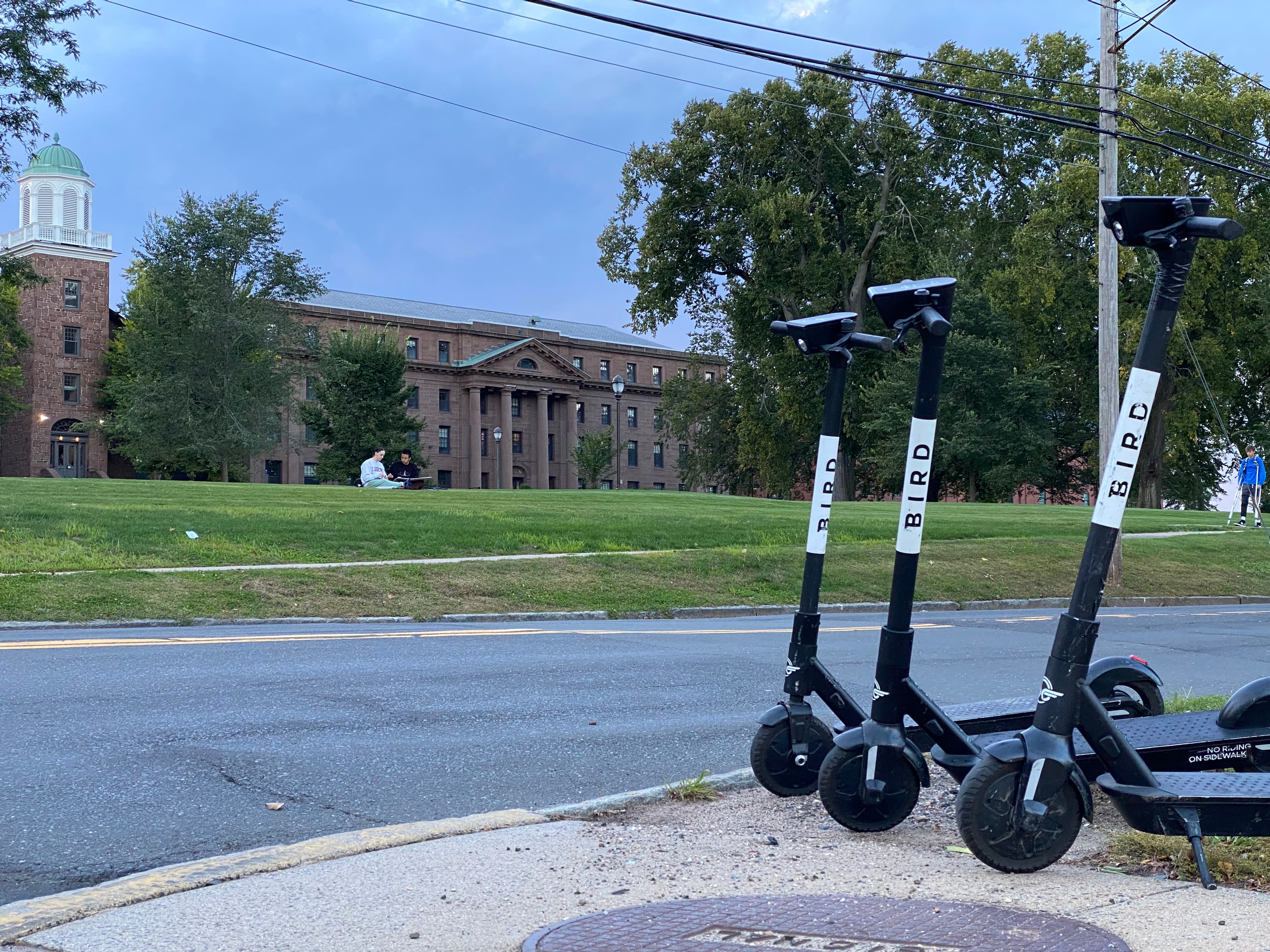
Bird scooters—manufactured by a company that makes electric scooters and bicycles—first appeared on campus as part of a Middletown sustainability initiative at the start of the Fall 2022 semester. The scooters were temporarily removed from campus during the winter and are scheduled to return in the spring. Though the scooters offered a new, convenient method of transportation, some students have raised concerns regarding their accessibility.
“Scooters have been causing some issues for students with disabilities,” Wesleyan Student Assembly (WSA) Community Committee Chair Valerie Lee ’24 said. “It’s easy to trip over Birds, people are not mindful about who they might impact with their irresponsible parking behavior.”
During the recent fall semester, the scooters and bikes were often haphazardly left in the middle of sidewalks and across common walkways across campus. As a result, the parked scooters became obstacles that students could easily trip over. For example, Jonghwa Kim ’25, who has a visual impairment, expressed concern over the placement of Bird scooters around campus. He frequently finds them in places where they are not supposed to be, like in pedestrian pathways, in front of stairs, and in front of doors, hindering his ability to navigate campus.
“People with various types of mobility related disabilities…[will] trip over them and it’s kinda just a hazard,” Kim said. “This morning, I tripped over one coming out of Hewitt.”
As an initial response to this concern, Dean for Academic Advancement Laura Patey began removing Bird scooters from sidewalks and walkways around campus. However, this was not a long-term solution. Currently, the University and Middletown officials are using geofencing—a process that entails using GPS or RFID technology to create virtual geographic boundaries—to see when Bird vehicles leave the area and to work on keeping pedestrian thruways clearer.
“[University staff] have reached out to Bird or Middletown officials about the parking issues, so I’m pretty sure they have geofenced it a little more strictly since they came to campus,” Lee said. “That is probably why you are seeing less of the Bird scooters around campus—parking has been an issue that we are trying to tackle.”
The Office of Accessibility Services confirmed that the removal of the Bird vehicles was due to the cold weather.
“Bird scooters will be returning in the spring season,” Director of Student Academic Resources Crystal Rose Hill-Farrell wrote in an email to The Argus. “Accessibility Services is aware of the accessibility challenges the Bird scooters and bikes caused on campus last semester…. [W]e are working with the WSA to get information out to campus at that time regarding the importance of maintaining clear pathways when ‘parking’ the scooters and bikes.”
For some students like Margery Fang ’26, who does not have easy access to a car on campus, the impending return of the Bird scooters is good news.
“[Bird scooters are] useful for me because sometimes I have errands I need to run that’s more than a ten, twenty minute walk,” Fang said. “The scooter is efficient [for that].”
Fang also remarked about how easy the online payment function is and how the option of a monthly payment plan for the scooters can prove to be useful to those who rely on the Bird scooters for everyday transportation.
Ultimately, with a second chance to access Bird scooters this semester, students and faculty alike hope that the University community will work together to find a safe, sustainable way of integrating Bird scooters back into the community.
Carolyn Neugarten can be reached at cneugarten@wesleyan.edu.
Judy Liu can be reached at jbliu@wesleyan.edu.



Leave a Reply